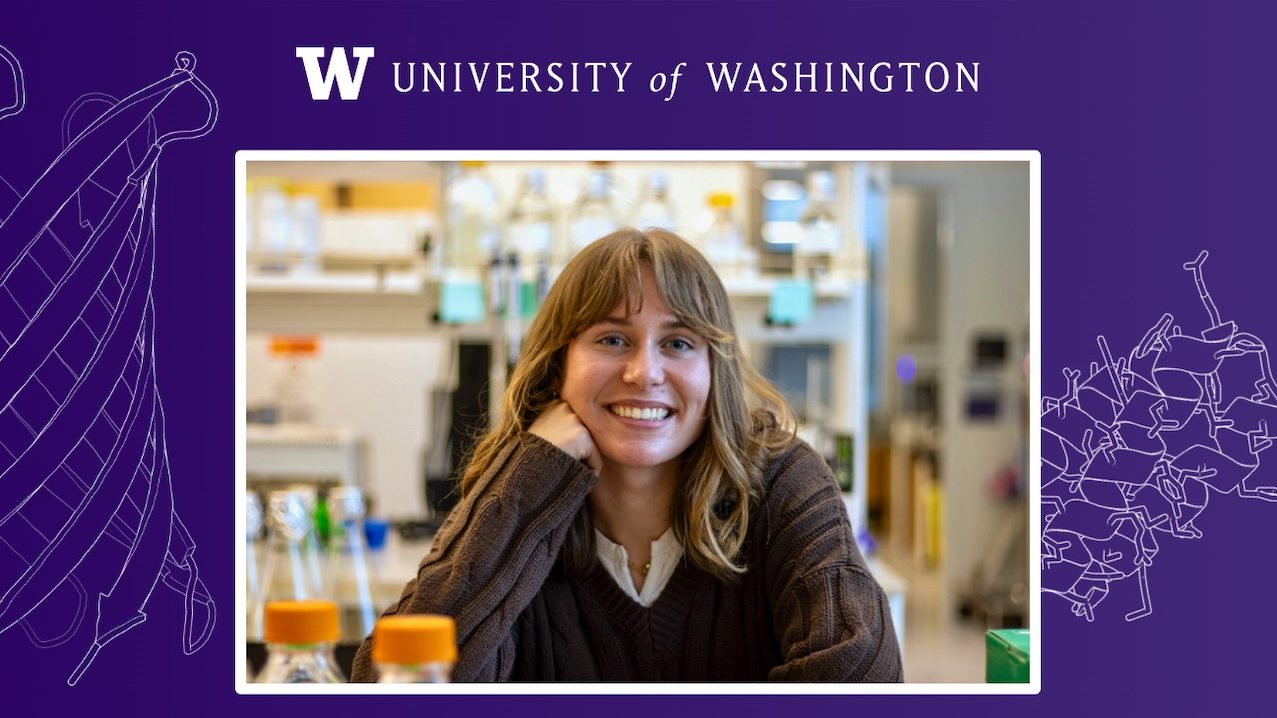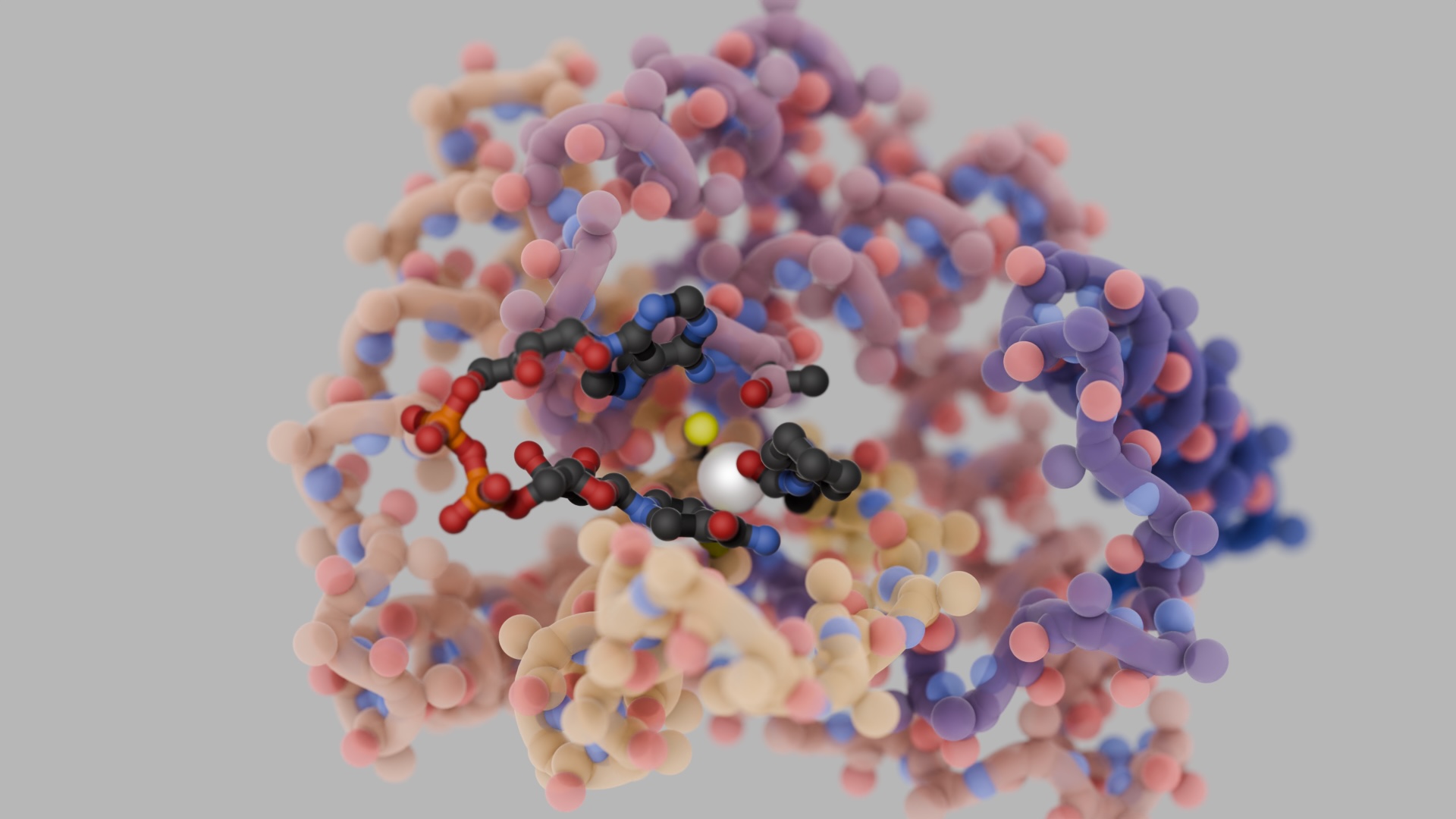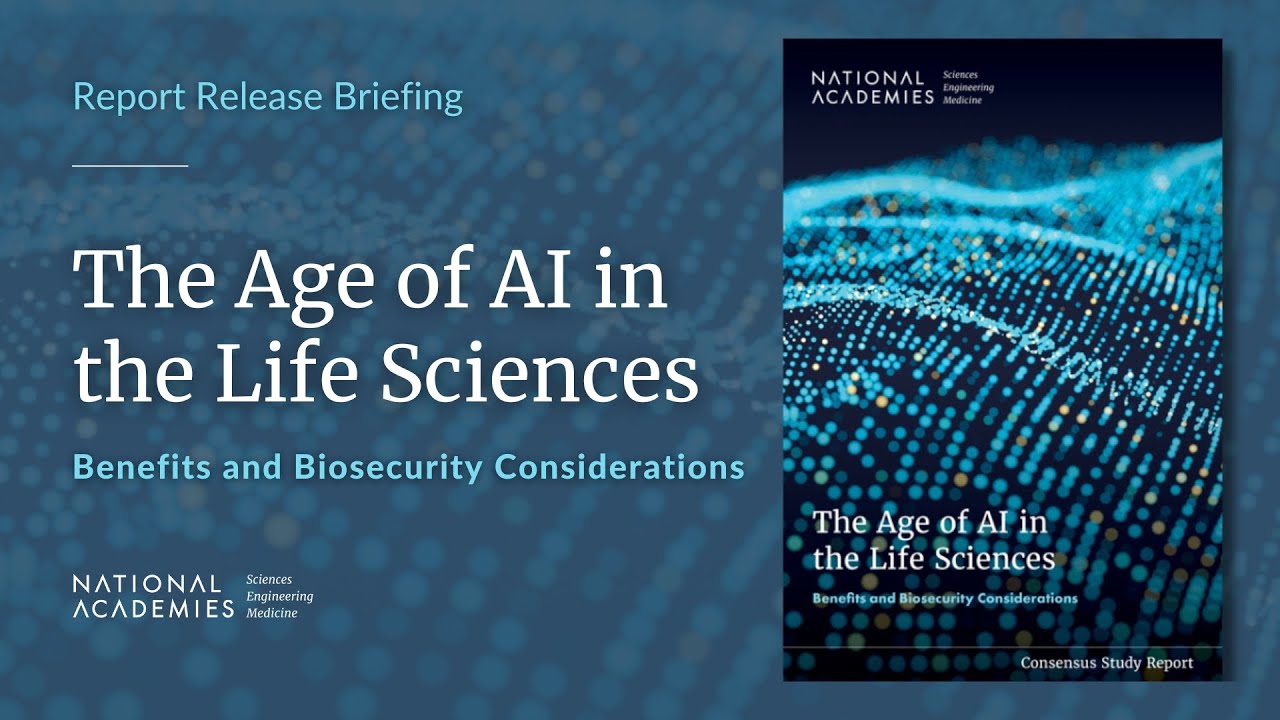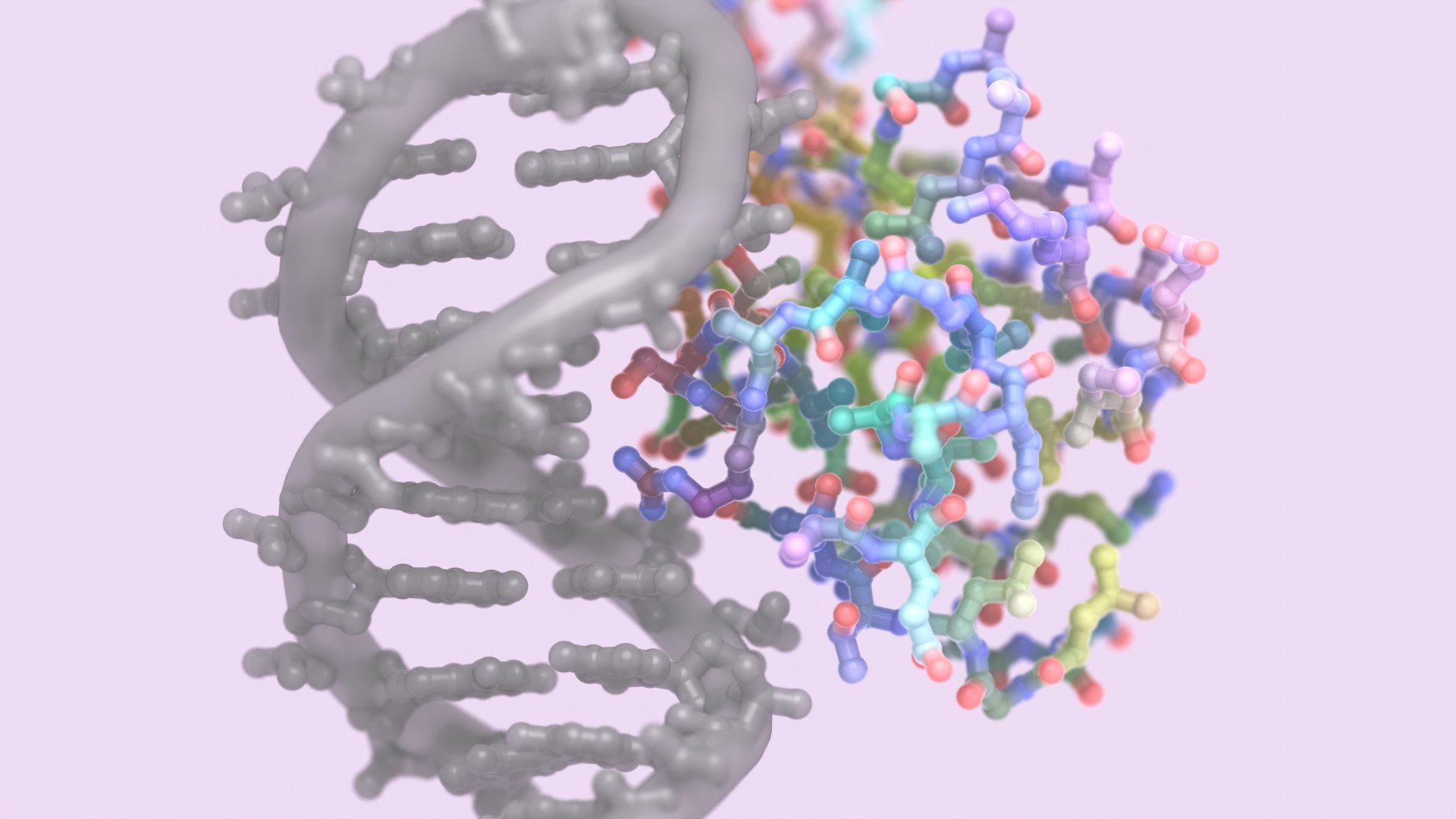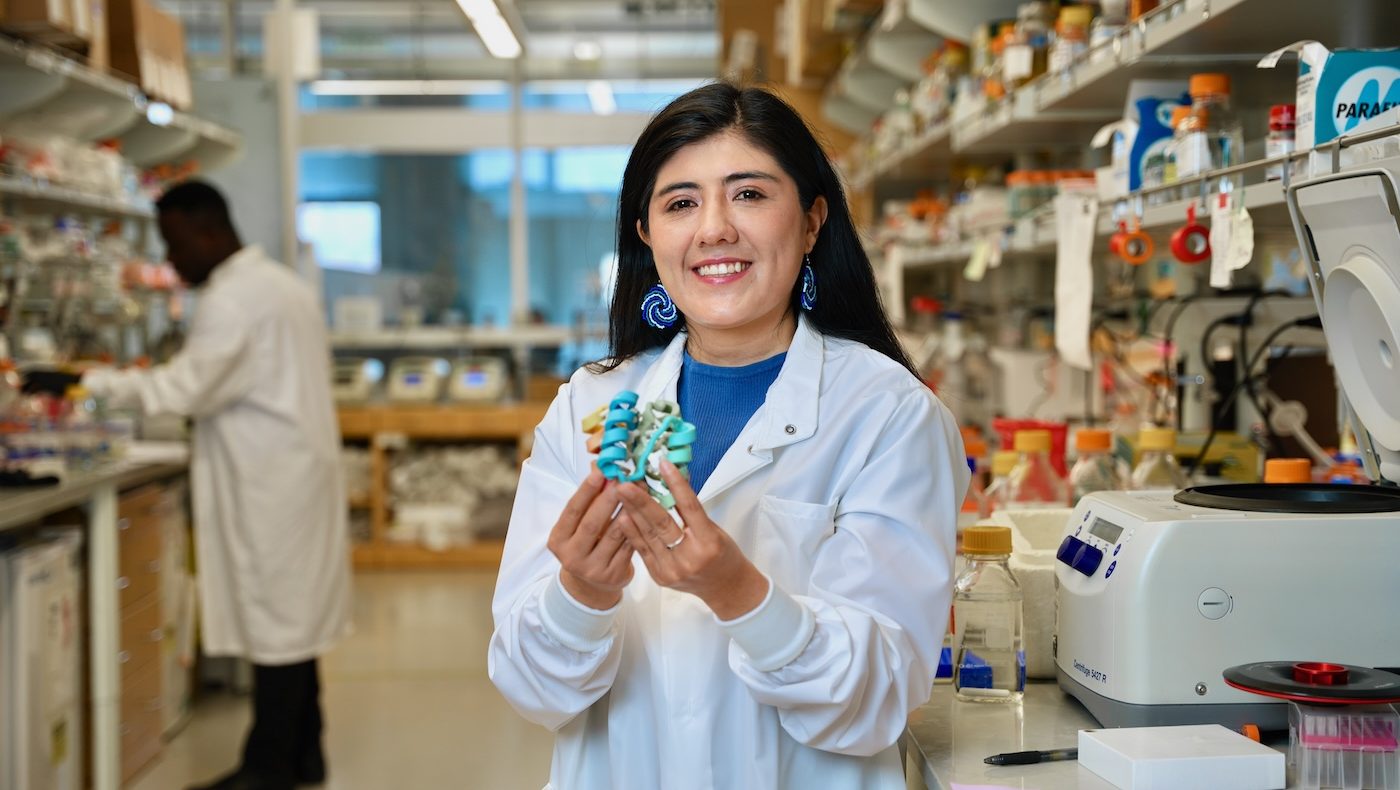What do squirrel skeletons and fish faces have in common with vaccines and bat flight? Probably only one thing: undergraduate researcher Abby Burtner has studied them all.
Already named a Goldwater Scholar, Mary Gates Scholar, and Washington Research Foundation Fellow, Abby has been conducting research since her freshman year. We’re delighted to share that she has also just been named a 2024 Churchill Scholar in recognition of her outstanding achievements in the field of biochemistry.
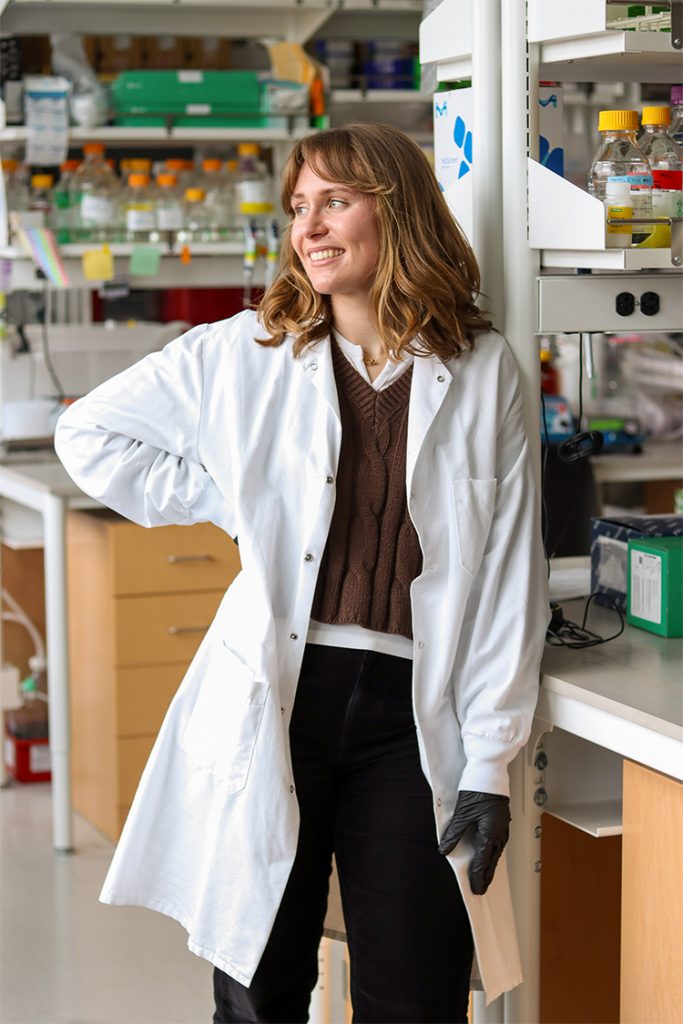
“The Churchill scholarship,” says Ed Taylor, vice provost and dean of Undergraduate Academic Affairs, “is a prestigious opportunity for Abby to continue expanding her biochemistry skills. This award reflects her capacity to draw from her research and the mentorship she’s experienced, to fuel her work toward a greater understanding of our world in critical ways. The UW’s research community and campus-at-large are proud of Abby and encourage her as she continues to live out UW’s mission at Cambridge.”
Beginning in 2022, Abby has conducted protein design research in the King Lab, which is part of the Institute for Protein Design. Her work here has focused on sculpting how the immune system responds to vaccines, with the goal of creating “sidekicks,” or adjuvants, that will help unlock durable protection following vaccination.
Abby’s curiosity for biology — nurtured during childhood rafting trips in the Pacific Northwest and honed through research she’s conducted here and abroad — was recently profiled by the University of Washington.
Congratulations, Abby!
From UW Undergraduate Academic Affairs:
Broadened perspectives
An interdisciplinary history and philosophy class helped shape Burtner’s perspective on science and innovation. The class’s exploration of scientific revolutions sparked her realization that advancements in one field can revolutionize another. “That was an interesting look at the science that made me take a step back,” she said of the genesis of her interdisciplinary studies. This cross-disciplinary awakening to new ideas and connections guided Burtner directly to Professor Neil King’s lab at the Institute for Protein Design (IPD).
Burtner’s arrival at the lab coincided with South Korea approving the IPD’s COVID-19 vaccine. Burtner was now working at the forefront of much-needed vaccine innovations. The IPD has revolutionized medicine and protein design through deep learning, a method in artificial intelligence (AI) that teaches computers to process data like the human brain, and machine learning, the development of statistical algorithms that learn from known data and unseen data. “When you are not limited by technology anymore, it comes down to how creative you can be,” Burtner explained.
Changing the world
“I think vaccines are particularly dramatic examples of technologies that can change the world for the better.”
Abby Burtner
Many traditional vaccines, like the flu vaccine, use a virus that’s live, but weakened or dead to stimulate strong immune responses. “There are huge public health ramifications,” said Burtner, explaining that these processes can cause issues for immunocompromised individuals. Research is shifting toward safer protein-based subunit vaccines, which eliminate potential risks by only displaying the necessary components of the pathogen.
“When people in my life have become sick, I want to help them,” said Burtner of her drive to help others through research. These vaccines required the co-delivery of adjuvants, like aluminum salt, to stimulate the immune system, but their mechanism isn’t fully understood and can’t be tailored for a specific immune response. Burtner sought out to create protein-based adjuvants to co-deliver with protein vaccines for a safer, more effective approach.
By targeting the toll-like receptor family of proteins, well-known activators of immune signaling, the goal was to get those specific immune responses.
“The IPD has been an inspiring space to be because of rapid design developments worldwide,” said Burtner. She cites the lab’s innovative and revolutionary design of de novo proteins as possible due to the deep learning revolution in biochemistry. The breakthrough release of AlphaFold2, the protein structure prediction algorithm enabled them for the first time to accurately predict the structure of a protein.

